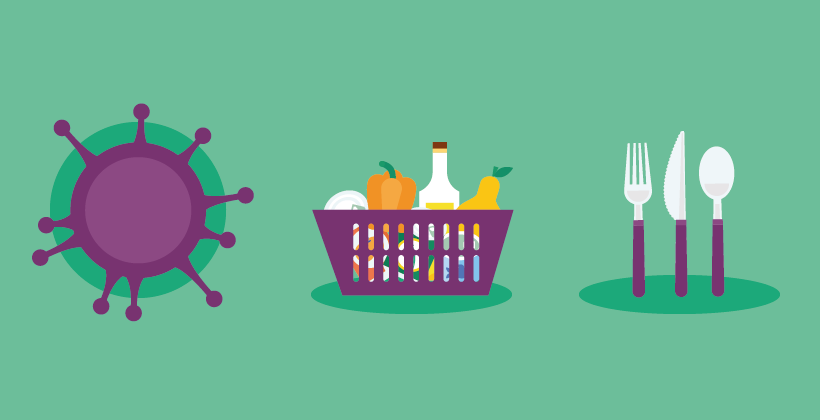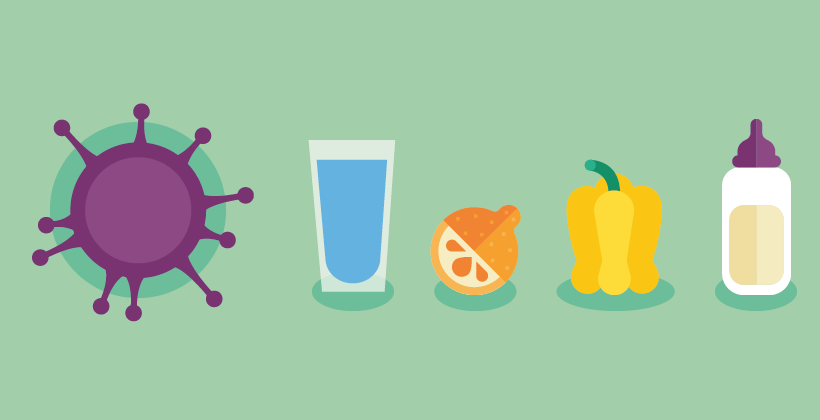How to keep healthy while in isolation or quarantine (COVID-19)
Last Updated : 02 April 2020Whether you are in quarantine or self-isolation due to COVID-19, you will inevitably be spending more time at home. Following general healthy living advice such as eating a balanced diet, staying hydrated, being physically active, getting enough sleep, and managing stress are the best recommendation for staying healthy during quarantine or self-isolation. If you are interested in food-related issues with COVID-19, read Food and coronavirus (COVID-19): what you need to know
1. Eat a balanced and varied diet
Simply put, there are no foods or supplements that can ‘boost’ our immune system and prevent or treat COVID-19. Nevertheless, eating a well-balanced diet, with plenty of fruits and vegetables, whole grains, plant and animal proteins and healthy fats is the best way to get all the essential nutrients we need for good health and normal immune function. As self-isolation may lead us to be less active, it is also important to pay close attention to food portions and to keep our energy balance adjusted to meet our needs.
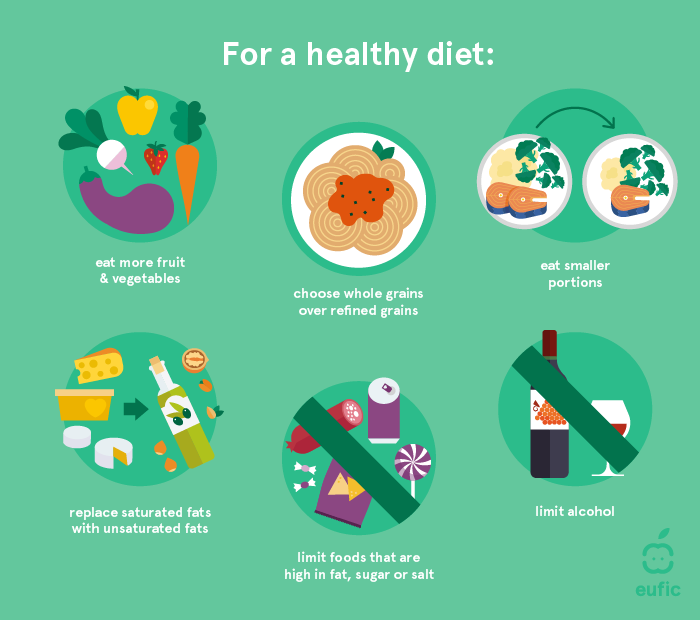
Figure 1. Healthy eating
2. Establish a routine and practice mindful eating
In times of uncertainty, it is normal to feel anxious, sad, stressed and scared. Maintaining a normal daily routine can help manage some of this stress. One way we can do this is by sticking to regular mealtimes and planning meals in advance. This can help us better control hunger levels, meet our nutrient requirements and allow us to get the most out of the food we have, reducing food waste.
During long-periods of stress we may find ourselves eating more than we need. Plus, staying at home for longer periods may also lead us to snack out of boredom. Practising mindful eating can be a useful strategy to maintain a healthy relationship with food and to helps us balance our energy intake.
Here are some tips to help you practice more mindful eating:
- Don’t eat on the go - it’s difficult to be aware of how much you are eating. Have a seat.
- Resist eating straight from the bag/box. Serve your food – you’ll be able to see and appreciate what and how much you’re eating.
- Remove distractions. Turn off the TV and everything else with a screen, like computers, phones, etc. while eating
- Take small bites and chew well, while focusing on the smell, taste and texture of the food. Try to get 30 chews out of each bite.
- Try putting your utensils down after each bite. Don’t pick them back up until you’ve swallowed what you already have in your mouth.
- Don’t try to finish the whole plate. If you feel full, safely keep the leftovers.
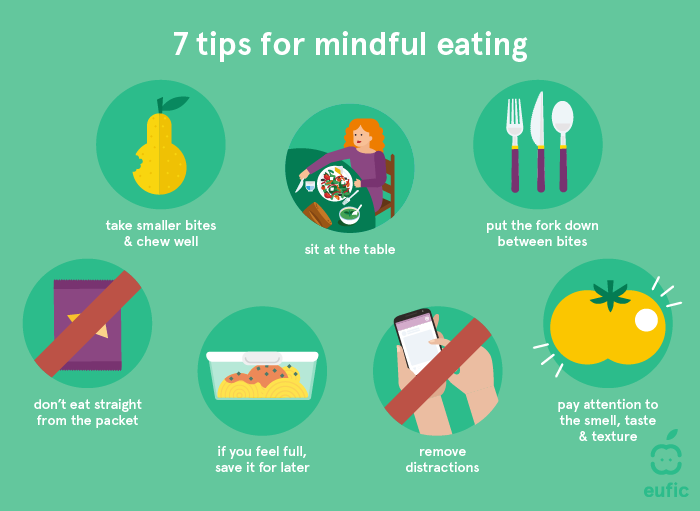
Figure 2. Tips for mindful eating.
3. Keep hydrated
Keeping hydrated is essential for overall health. How much water we need depends on our age, sex, weight, height, level of physical activity and environmental conditions (i.e. hot weather will likely require you to drink more water). Taking into account that around 20-30% of the water we need comes from our food, the European Food Safety Authority has set average recommendations for how much water we should drink per day depending on our age (figure 3).1
If you have access to safe tap water, this is the healthiest and cheapest drink. For a refreshing boost, you can add slices of lemon, cucumber, mint or berries. Other drinks such as unsweetened coffee and tea or iced tea, or unsweetened, infused or flavoured (sparkling) water are also good choices for hydration.
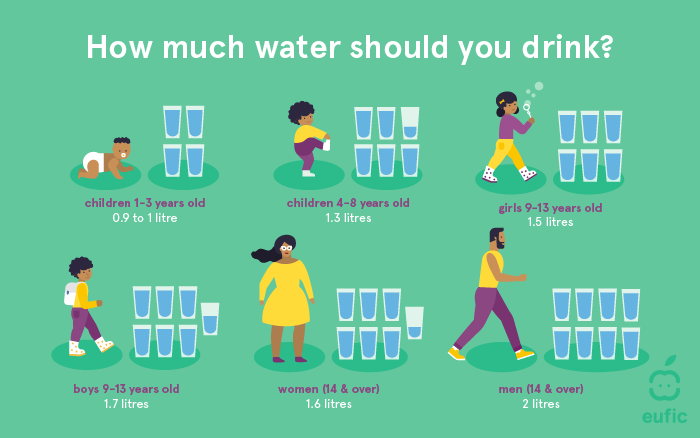
Figure 3. Water recommendation for different age groups set by EFSA.1
4. Practice safe food hygiene
According to the European Food Safety Authority, there is currently no evidence that COVID-19 is transmitted through eating food. However, good food safety practices are important to minimise the risk of foodborne illnesses.
When handing or preparing food, make sure to:
- Wash your hands for 20 seconds with soap before and after preparing or eating food
- Cover your mouth and nose with a tissue or your sleeve when you cough or sneeze and remember to wash your hands after
- Wash fruits and vegetables before eating them
- Disinfect surfaces and objects before and after use
- Keep raw and cooked foods separate to avoid harmful microbes from raw foods spreading to ready-to-eat foods
- Use different utensil/chopping boards for raw and cooked foods to prevent cross-contamination
- Make sure to cook and reheat foods to adequate temperatures (≥72°C for 2 mins)
5. Stay active at home
Physical activity benefits both the body and mind. Healthy adults should aim for at least 30 minutes of daily physical activity and at least 1 hour for healthy kids (5-17 years).
Follow these tips for staying physically active during self-isolation or quarantine:
- Plan time for physical activity in your day
- Take regular breaks from sitting by standing up and stretching or going for a quick walk if permitted
- Follow an online exercise class
- Think outside the box: activities like dancing, playing active videogames, cleaning the house or playing with your kids all count as physical activity!
For more information see WHO European Region - Stay physically active during self-quarantine
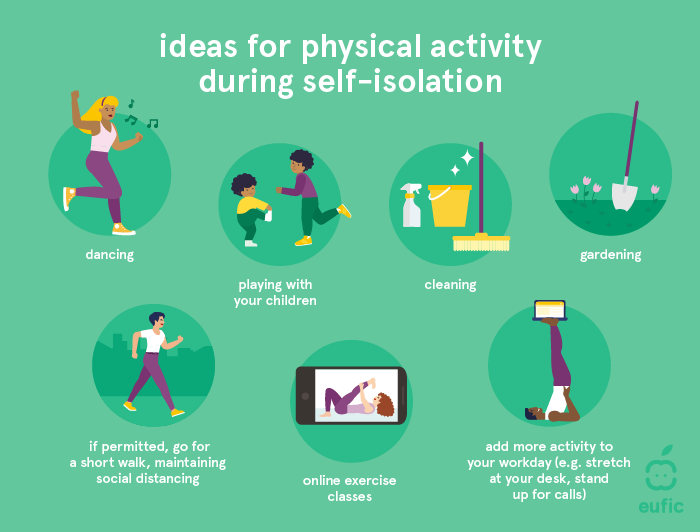
Figure 4. Ideas for physical activity during self-isolation.
6. Get enough quality sleep!
A lack of quality sleep can negatively affect both our physical and mental health as well as reduce our immune system’s ability to fight off infections. The amount of sleep we need depends on our age (figure 5). In general, adults should aim to get at least 7 hours of quality sleep per night. Stress brought about by the COVID-19 pandemic may have a negative impact our sleep. Therefore, we should try to priorities good sleeping habits and ensure we are getting enough.
Here are some tips to help you improve your sleep:
- Establish a regular sleep schedule (going to bed and getting up at set times), and keep it on weekends and when working from home
- Limit alcohol intake and do not smoke
- Avoid caffeine before bedtime
- Exercise regularly
- Use comfortable inviting bedding
- Keeping your room quiet, dark and at a comfortable temperature
- Disconnect from electronics before going to bed
- Try relaxation techniques such as meditation
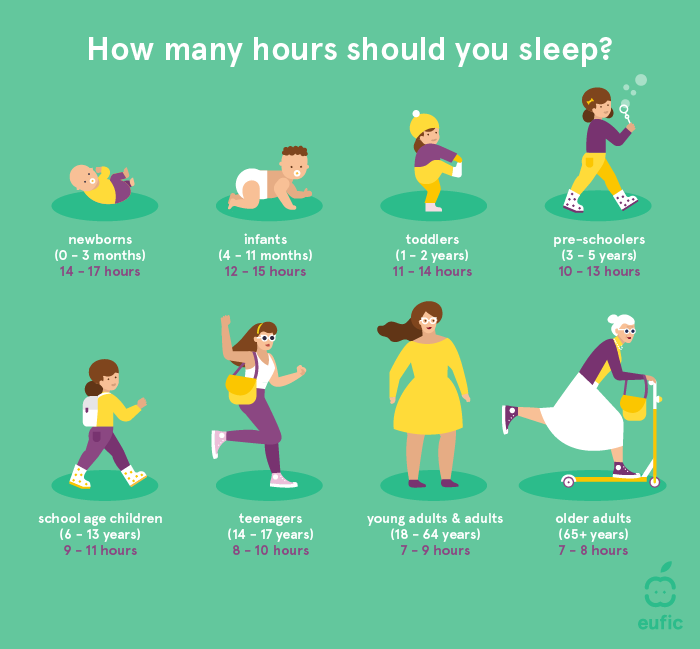
Figure 5. Recommended hours of sleep for different ages.2
7. Get information from trustworthy sources
There is a lot of misinformation surrounding COVID-19 on the internet and social media. It is important we get our information from reliable and trustworthy sources, such as government websites or websites of trusted national or international organisation (e.g. WHO, EFSA, ECDC). For more information on the understanding of science, check out our infographics on the hierarchy of scientific evidence and how to find reliable information online.
It is important to stay informed on the best practices to stay safe during this time. However, we should try to minimise watching news that causes us anxiety and is affecting our mental health. For more information see WHO - Mental health and psychosocial considerations during the COVID-19 outbreak.
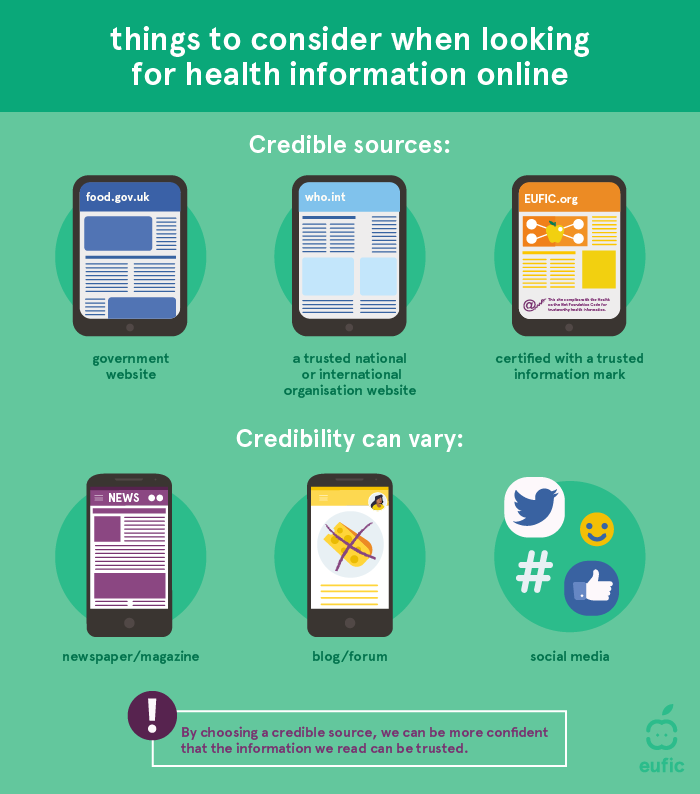
Figure 6. What to consider when looking for health information online.
Other useful sources
For more general information on COVID-19:
- World Health Organization (WHO) - Q&A on coronaviruses (COVID-19)
- European Centre for Disease Prevention and Control (ECDC) – Q&A on COVID-19
For more information on COVID-19 and nutrition:
- British Dietetics Association - COVID-19 / Coronavirus - Advice for the General Public
- WHO European Region - Food and nutrition tips during self-quarantine
- NNEdPro Global Centre for Nutrition and Health – COVID19: Nutrition Resources
For more information on self-isolation and mental health:
For more information on COVID-19 and risk of transmission via food:
For more information on the impact of COVID-19 on the food and agricultural industry:
For more information on the Myths around COVID-19:
- World Health Organization (WHO) - Coronavirus disease (COVID-19) advice for the public: Myth busters
For more information on sleep:
